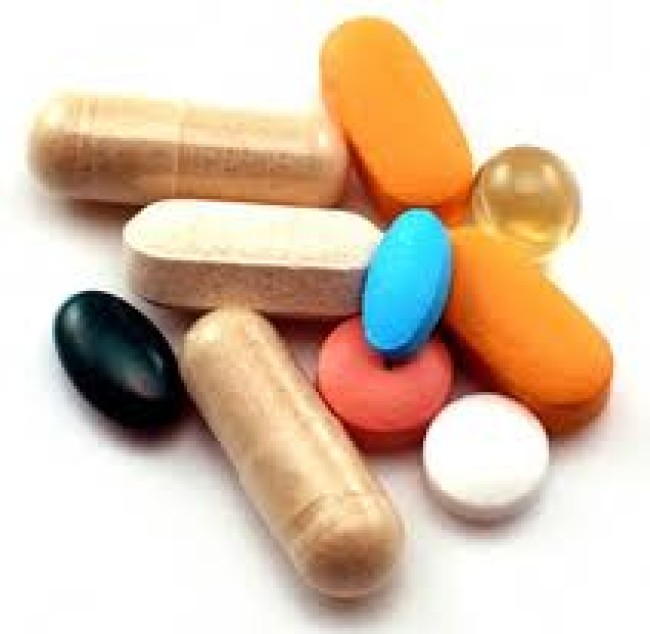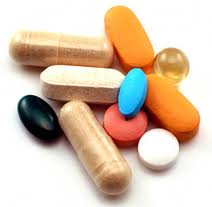Multivitamins: not a good choice for a health
 When it comes to vitamins and minerals, could you be getting too much of a good thing? If you’re taking any supplements, you may well be doing just that. And according to a growing body of research, it could be costly to your health. Two new studies add to the concern about our quest for good health through supplement use, especially those in high doses.
When it comes to vitamins and minerals, could you be getting too much of a good thing? If you’re taking any supplements, you may well be doing just that. And according to a growing body of research, it could be costly to your health. Two new studies add to the concern about our quest for good health through supplement use, especially those in high doses.
The first study, part of an ongoing investigation called the Iowa Women’s Health Study published in the Archives of Internal Medicine, assessed the use of vitamin and mineral supplements in relation to total mortality in more than 38,000 older women from 1986 until 2008.
The subjects filled out questionnaires detailing their diets and supplement use at various intervals through that time period. Not surprising, as is the case with other parts of today’s society, during the study increasingly more women took supplements. In 1986, 62 per cent of women reported using at least one supplement daily while the figure jumped to more than 85 per cent in 2004.
Last week’s Enlightened Eater: Think peanut butter is mostly peanuts?
It seems that supplement marketing has indeed been effective.
The study results showed that not only did the supplements not lead to a longer life, they were actually connected to a slightly higher risk of death. Certain supplements were linked to the increased risk of death including multivitamins, vitamin B6, folic acid, iron, magnesium, zinc and copper. Iron, in particular, was labelled as a culprit: the more iron a woman took, the greater the risk of death.
It’s a mineral that is critical for healthy red blood cells and haemoglobin which is responsible for carrying oxygen through the bloodstream to the brain and muscles. While too low an iron level can leave you feeling anemic and fatigued, too much can boost the rates of oxidation – a process linked to increased rates of a host of ailments including heart disease, certain cancers and diabetes. Unknowingly, some people take iron in their supplements and then require antioxidants to counter this oxidation.
Not a good idea. In fact, iron should only be taken when you’re advised to do so by your physician.
But there’s also research suggesting that there are risks associated with taking calcium.
The take home message here is that supplements may pose a risk and more research is needed. But it must also be pointed out that this study was an observational one, not a clinical trial – meaning that the scientists did not set up the research where identical groups of women would be evaluated with some taking the vitamins and others taking a placebo. This kind of investigation is called a clinical trial and offers more conclusive proof. So don’t toss your multis just yet. But do check what’s in the bottle and in what amount.
The second study, The Selenium and Vitamin E Cancer Prevention Trial (SELECT), was a clinical trial involving more than 35,000 men living in Canada, the U.S. The men were randomly placed into four different groups: 400 IU vitamin E and 200 micrograms selenium; vitamin E only and a selenium placebo; selenium only and a vitamin E placebo and placebos for both the vitamin E and selenium.
The investigation was supposed to range from seven to 12 years but was stopped early because the researchers saw that they were not getting the positive protective results they expected. In fact, they found that there was a 17 per cent increase in the odds of developing prostate cancer in those men who took the vitamin E supplements.
What is troubling to the researchers as well is that the cancer risk remained higher well after the vitamins were discontinued.
But some experts who have been following the vitamin E and cancer research over the years are not likely surprised by the findings. Over a decade ago when vitamin E supplements were still looking somewhat like a nutritional star, these researchers sounded the alarm bells. Their concern was that the form of vitamin E found in supplements is mainly alpha tocopherol. In food, though, there are eight different natural forms of vitamin E. Too much alpha tocopherol, they suggested, could displace other forms like gamma and delta tocopherol, both of which offer potent cancer-fighting power. And that, they surmised, could spell trouble on the cancer front.
If you check vitamin E labels, you’ll see that most contain alpha tocopherol and some, while supplying a mix of tocopherols, still contain significantly more of the alpha variety. And, in the meantime, large doses of vitamin E lost their lustre when research showed they were not a panacea for heart health.
Before you consume any nutrient in doses you can’t get from food or daily living (such as vitamin D from the sun), be patient and wait for a consensus of scientific opinions. One or two studies simply point scientists in one direction. A body of evidence is required to come up with answers.
Supplement sales are a big deal these days with around three billion dollars being shelled out annually in Canada alone. Multilevel marketing companies are out there promoting products – often expensive – while trying to undermine your trust in the foods you eat. All too often, though, it’s the seller’s finances – not your health – that will benefit.
If you do take any supplements, keep the definition of supplement in mind. They’re an addition to a healthy diet not a replacement for one. They simply can’t match up to the cornucopia of disease-fighters found in food. And consider that vitamins and minerals or any nutritional supplements, for that matter, in large doses become a pharmaceutical agent – a medicine, not a food.
Paracelcus, often called the father of toxicology, got it right when he said “the dose makes the poison” back in the early 16th century


